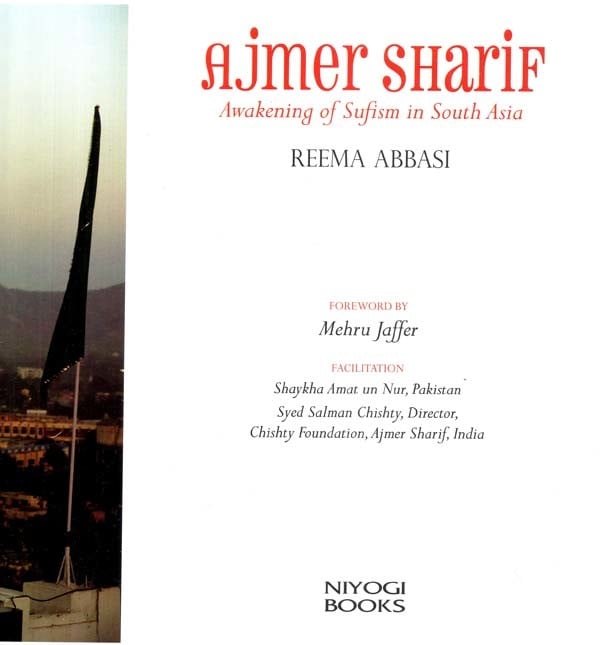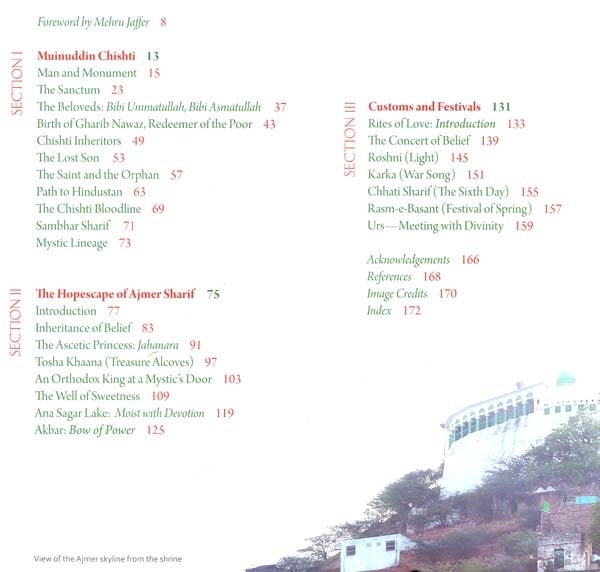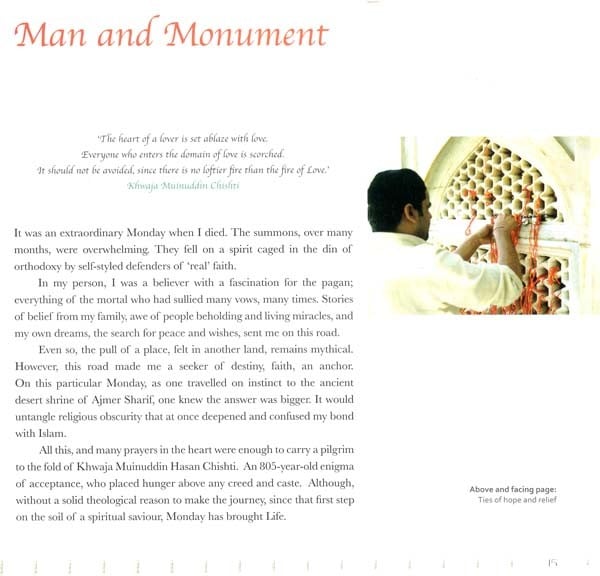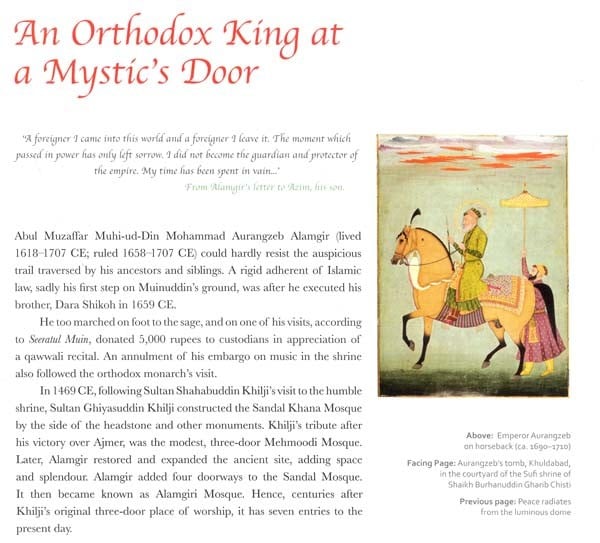
Ajmer Sharif- Awakening of Sufism in South Asia
Book Specification
| Item Code: | AZE161 |
| Author: | Reema Abbasi |
| Publisher: | NIYOGI BOOKS |
| Language: | ENGLISH |
| Edition: | 2017 |
| ISBN: | 9789385285646 |
| Pages: | 176 (Throught Color Illustrations) |
| Cover: | HARDCOVER |
| Weight | 810 gm |
Book Description
Muinuddin Chishti brought qawwali, the genre of Sufi devotional recitals, and the ideal of acceptance to the world. He discouraged religious supremacy and patriarchy by example his wife was a central leader and his only daughter became a caliph an aspect practised at his seat, but cast off by other shrines of his lineage.
An elaborately researched oeuvre on the history, spiritual journey, mystical power and legacy of the 12th century Sufi giant-rich with accounts of Mughal devotees, monuments, rituals and over 200 unique, evocative photographs Ajmer Sharif traces the life of the saint and reveals the living force of his shrine.
At present, she is a columnist, an independent contributor with international newspapers and a regular commentator on socio-political issues. In the last decade, her writings have maintained a rabid focus on the values of secularism. With her last book Historic Temples in Pakistan: A Call to Conscience she aimed to stir a discourse that dispels intolerance towards any faith and shuns the concept of religious power.
She attended Sherborne School for Girls in England and St. Joseph's College in Karachi, Pakistan. Her other passions include travel, arts and culture.
She received the Rajiv Gandhi Award for the literary personality of the year, 2014, at the Fifth Rajiv Gandhi Excellence Awards.
To know Muinuddin Chishti better is to glimpse the poetic side of Islam, especially when it seems so difficult for the world to appreciate Muslims today. The life of Muinuddin Chishti, founder of the Chishtiya mystical order in South Asia is a glowing example of how to practise love in times of hate. What Muinuddin Chishti did was to conquer fear, suspicion and the religious divide of the day with poetry, music and a simple philosophy of love that appealed most to the majority of people who were tired of war waged upon them by others.
Because of his open house lifestyle in Ajmer, in the heartland of the Indian subcontinent, Muinuddin Chishti was able to initiate a cultural dialogue amongst people belonging to different cultures and religions, at his doorstep. This naturally earned him more friends, even amongst total strangers.
**Contents and Sample Pages**











